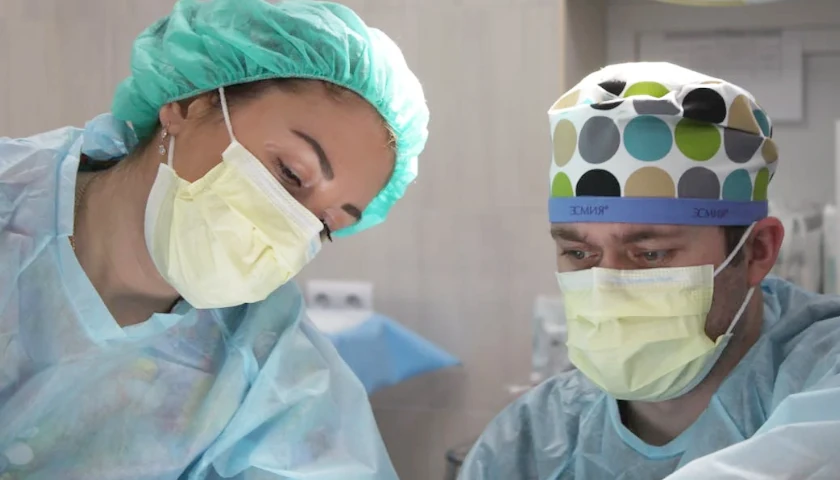A new study reveals that women and girls who use drugs to induce abortions are exposed to increased health risks when they suffer complications, including admissions for surgeries and further hospital admissions, when they deceive doctors by saying they have suffered a “natural miscarriage” instead of admitting they had chosen a drug-induced abortion.
Last week, the Charlotte Lozier Institute (CLI), the research arm of Susan B. Anthony Pro-Life America, released the study, titled “A Post Hoc Exploratory Analysis: Induced Abortion Complications Mistaken for Miscarriage in the Emergency Room Are a Risk Factor for Hospitalization.”
Learn more: https://t.co/89nLYYtdlx
— Charlotte Lozier Institute (@LozierInstitute) May 26, 2022
Results found women presenting to an emergency room with complications related to drug-induced abortions that are miscoded as a natural miscarriage are twice as likely to be admitted for surgery for retained products of conception [RPOC] and at significantly greater risk of multiple hospital admissions for treatment of complications.
The researchers analyzed the most recent Medicaid data from 2015 and found over 60 percent of abortion pill-related emergency room visits were miscoded as treatment for miscarriage, according to the study.
“Abortions miscoded in the ER were more likely to result in hospitalization for any reason … than those not miscoded,” the researchers reported. “However, the subset of chemical abortion patients whose abortion was miscoded as miscarriage did exhibit a striking pattern of multiple admissions (3.2 per patient) for those women who were subsequently admitted compared to 1.8 admissions per woman whose abortion was not miscoded.”
“Thus, the number of admissions per patient was 78 percent higher in women whose chemical abortion was concealed,” the researchers observed, adding:
Further analysis determined that admissions for surgical RPOC [retained products of conception] were experienced by 86.3% of the women whose chemical abortion was subsequently miscoded in the ER, 2.5 times the rate of surgical abortion patients (34.2%) whose abortion was similarly miscoded.
The following medical animation video, narrated by OB/GYN and former abortionist Dr. Anthony Levatino, shows what happens to the mother and unborn baby when mifepristone and misoprostol, the drugs used to induce abortion during the first trimester, are used to end the life of the baby:
CLI cites the problem of the abortion industry and its allies in the media advising women to conceal their drug-induced abortions as a miscarriage.
For example, an article at New York Magazine’s thecut.com informs readers in “How to Have a Medication Abortion” that if they experience “heavier bleeding and larger clots” following a drug-induced abortion, they may need “further medical assistance,” but assures “there will be no physical evidence you’ve taken pills as long as they’ve fully dissolved.”
“You are now having a miscarriage,” the authors assert. “Everyone at the ER should treat you accordingly, so avoid mentioning abortion, and the pills, entirely.”
Abortion rights activism site AidAccess also informs women fearful they are suffering complications from a self-induced drug abortion:
If you think you might have a complication you should go to a doctor immediately. You do not have to tell the medical staff that you tried to induce an abortion; you can tell them that you had a spontaneous miscarriage. Doctors have the obligation to help in all cases and know how to handle a miscarriage.
The symptoms of a miscarriage and an abortion with pills are exactly the same and the doctor will not be able to see or test for any evidence of an abortion, as long as the pills have completely dissolved. If you used the misoprostol under the tongue as our protocol recommends, the pills should have dissolved within 30 minutes. If you took the pills vaginally, you must check with your finger to make sure that they are dissolved. Traces of the pills may be found in the vagina up to four days after inserting them.
In October 2020, abortion activist group We Testify also tweeted, “If a person needs to go to the hospital, they can say they are having a miscarriage. There’s no way for medical experts to tell the difference.”
If a person needs to go to the hospital, they can say they are having a miscarriage. There’s no way for medical experts to tell the difference.
Miscarriage & Abortion Hotline (833) 246-2632
Self-Managed Abortion Safe & Supported: https://t.co/M8DmZpfoAn pic.twitter.com/v5BjhXXF6i— We Testify (@AbortionStories) October 27, 2020
Florida abortionist Ralph Bundy, M.D., of Womancare Centers, Inc., also told the Daily Kos in May women should not be fearful of seeking emergency medical care following a drug-induced abortion because the results are similar to a miscarriage.
“If I see a woman in the emergency room, I can’t tell the difference between an induced abortion and miscarriage,” Bundy said. “And the treatment for the two is going to be the same.”
Dr. James Studnicki, CLI vice president of data analytics and lead author of the current peer-reviewed study, explains, however, that such advice for women experiencing complications from a self-induced drug abortion amounts to “a cover-up by the abortion industry, aided by willing allies in the media and in politics.”
The researcher added:
Real-world data shows that miscoding abortion pill complications as miscarriage increases the risk for multiple hospitalizations and follow-up surgery. By encouraging women to conceal important information from their doctors, and recommending that pro-abortion doctors misreport these complications, both women’s health and our understanding of the risks of the abortion pill are put in jeopardy.
“Good science depends on reliable data,” Studnicki said. “Good medicine depends on an accurate medical history. Abortion advocates are working to undermine both and it is the women they claim to support who pay the price.”
Have you heard media reports claiming that overturning Roe would negatively impact treatment for miscarriage and ectopic pregnancy? It's simply not true.
Learn more in a @CTmagazine interview with CLI scholars Dr. Ingrid Skop and Dr. Donna Harrison. https://t.co/WPxNK6WmP5
— Charlotte Lozier Institute (@LozierInstitute) May 27, 2022
Dr. Ingrid Skop, a board-certified OB/GYN and CLI’s director of medical affairs, added that the abortion rights-focused media’s claim that a natural miscarriage and drug-induced abortion look the same amounts to “encouraging medical malpractice.”
“The abortion pill impairs the immune system, meaning that women experiencing complications have a higher risk of infection, including an unusual sepsis,” Skop added. “The abortion pill also increases the risk of hemorrhage.”
“Having walked with thousands of women through difficult pregnancies, miscarriage, and even complications from abortion, I know firsthand how difficult it is to talk about these issues,” she explained. “But I can’t understand why the abortion industry seeks to nullify and even exacerbate a woman’s grief and experience by telling her to conceal important and medically necessary information from her physician.”
“The data is clear,” Skop asserted. “Not telling your doctor that you’ve taken the abortion pill increases your health risks.”
– – –
Susan Berry, PhD, is national education editor at The Star News Network. Email tips to [email protected].




